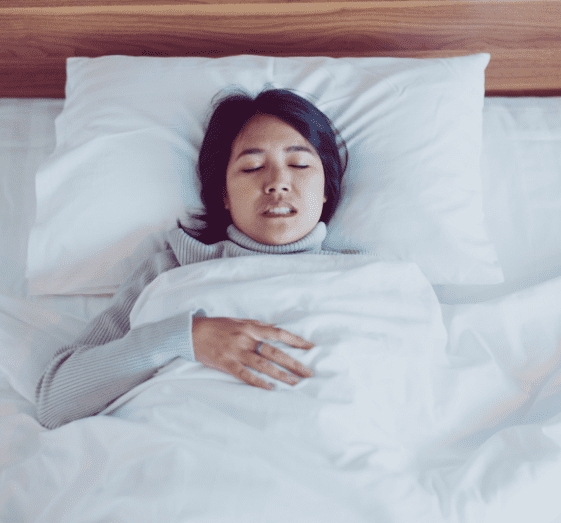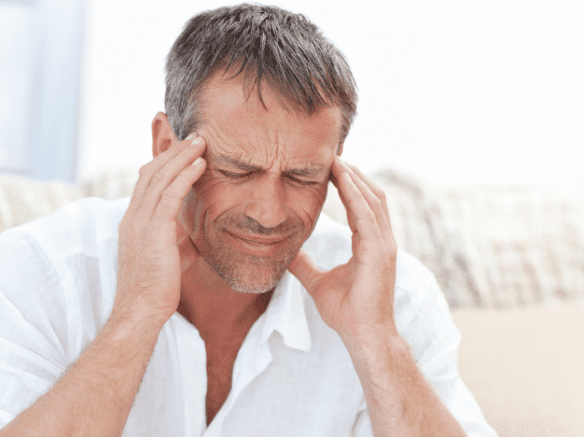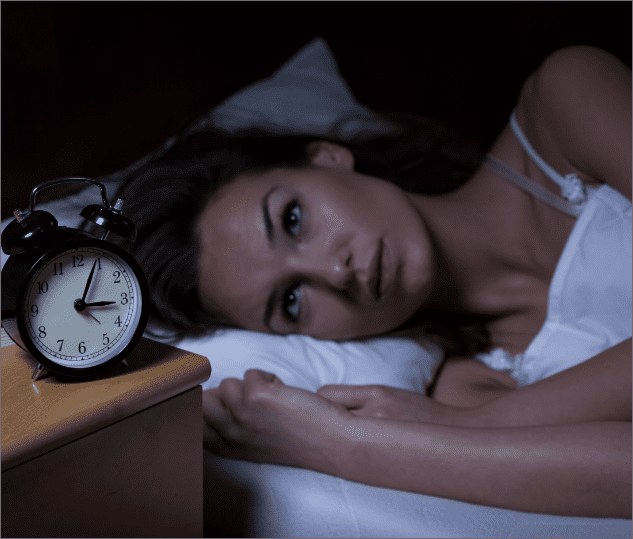Everything You Need to Know
About Bruxism
A Guide To Everything
About Bruxism
Millions of Americans every year are likely to wake up with morning headaches and a sore jaw. Or sometimes, they’re frequent headaches and jaw pain during the day that only worsens at night.
These can be signs of bruxism, which is when there’s a gnashing, clenching, squeezing, or grinding of teeth unconsciously by using the jaw muscles constantly and with noticeable effects on your health.
This guide will provide an overview of bruxism, its causes and symptoms, and the treatment options available. We will also explore ways to reduce the risk of bruxism and how to manage it.
Defining Bruxism
Bruxism is the involuntary and (mostly) unconscious habit of grinding or clenching teeth, often occurring during sleep or stress. It can lead to crooked teeth, damage to the tooth enamel, jaw pain, face pain, headaches, and other related health issues.
Teeth grinding and clenching are often used interchangeably, but they are not the same. Grinding involves a back-and-forth or side-to-side movement of teeth against teeth, often accompanied by clenching, which is the firm pressing of top and bottom teeth together, as if clamping something in place.
Clenching is most responsible for jaw soreness and pain while grinding increases tooth damage and can lead to flattening. In extreme cases, teeth become shorter, which adds to the pain and soreness of the jaw muscles and temples.

Types of Bruxism
Daytime Bruxism
Also called awake bruxism, it describes the involuntary grinding of teeth while awake, typically during stressful or anxious periods.
Awake bruxism is a very common condition affecting over 22% of the general population.
Children aged 3-10 are at greater risk of bruxism while awake, but it also affects adults, worsens during the day, and can trigger the onset of bruxism at night during sleep.
Sleep Bruxism
Sleep bruxism, also called nocturnal bruxism, is characterized by involuntary grinding and clenching of the teeth during sleep on a regular basis and is found in 12% of persons across all age groups, although most common in children and teens.
It is also estimated that 8-31% of adults suffer from sleep bruxism, and it is worse during the morning right before waking. Cases of sleep bruxism are likely underreported because many patients simply don’t realize they’re suffering from it.
Common Symptoms of Bruxism


How is bruxism diagnosed?
Besides realizing you might have some of the symptoms of bruxism, one of the more common ways for bruxism to first be detected is if your sleep partner hears the gnashing and grinding of your teeth at night. That’s also how parents are alerted to bruxism in their kids, by realizing they’re clenching their teeth at night after going to bed.
During a routine dental exam, your dentist will evaluate your general dental health to detect any indications of bruxism, such as excessive wear on teeth or flattened tooth tips. In the presence of signs and symptoms, they will monitor the condition during subsequent visits before initiating treatment.
Your bite records will be compared to your earlier visit by a dentist, and watch your teeth for continued signs of abnormal tooth wear or even loss of teeth. They will also likely help you fill out the Bruxism Status Questionnaire (BSQ), their own unique test, or order overnight polysomnography(PSG) to identify and objectively measure the severity of the bruxism.
Don’t delay and consult any physician about bruxism if you’re suddenly struggling with jaw soreness, sensitive teeth, headaches, and even problems sleeping so they can start an effective treatment.
What Are The Main Causes Of Bruxism?
While the exact causes of bruxism are unclear, certain factors are thought to contribute to its prevalence. These risk factors for bruxism can include lifestyle habits, stress, anxiety, and some medical conditions.
Below we will discuss the potential causes of bruxism in more detail.
Psychosocial and psychological factors
A majority of cases of primary bruxism come from psychosocial and psychological factors.
While the relationship between bruxism and psychosocial factors can be complex, experts typically conclude the following factors contribute most:

Stress and Anxiety:
Aggression and Anger:
Especially during daytime or awake cases, aggression and anger in individuals can trigger an increase in muscle tension throughout the body, including the jaw muscles. This elevated muscle tension, combined with the grinding or clenching action, can develop or worsen bruxism. Moreover, these intense emotions can disrupt normal sleep patterns, causing individuals to grind or clench their teeth during the night.
Night Terrors and Sleep Disorders:
Depression:
Depression is a mood disorder that involves a range of emotional and physical symptoms, such as persistent sadness, lack of interest, and heightened stress. This can result in increased muscle tension and even the grinding or clenching of teeth, especially during sleep. Depression can also have a disruptive effect on sleep, leading to poor-quality rest. This can further contribute to bruxism, as muscle tension just gets worse. All these factors combined can make the condition even more difficult to cope with.
Lifestyle choices:
Habits such as drinking alcohol, consuming caffeinated beverages, and using recreational drugs can increase the risk of bruxism. Alcohol, caffeine, and nicotine can all act as stimulants, leading to increased muscle tension and the likelihood of teeth grinding. Recreational drugs typically also have a stimulating effect that negatively affects your sleep quality, which in turn adds to your daily stress and anxiety.
Medical and genetic factors
Medical issues can cause bruxism, especially those that increase muscle strain and pain or disturb the sleep cycle and intensify anxiety. Medications meant to treat these conditions may also lead to bruxism as a side effect.
Genetics can also play a role: those who have a family history of bruxism are more likely to develop it.
Some of the medical conditions that lead to bruxism are:

Sleep disorders:
Conditions such as sleep apnea, restless legs syndrome (RLS), and periodic limb movement disorder (PLMD) can disrupt normal sleep patterns and lead to bruxism.
Temporomandibular Joint (TMJ) disorders:
TMJ disorders, characterized by problems with the jaw joint and surrounding muscles, can cause jaw pain, muscle tension, and misalignment, which may contribute to bruxism.
Gastroesophageal reflux disorder/disease (GERD):
Individuals with GERD may experience acid reflux or regurgitation during sleep, leading to irritation of the esophagus and triggering episodes of teeth clenching and grinding.
Neurological conditions:
Certain neurological disorders, such as Parkinson’s disease and Huntington’s disease, have been associated with bruxism. The underlying neurological changes or medication side effects can contribute to muscle dysfunction and bruxism.
Medications:
Some medications, particularly psychiatric medications like antidepressants or antipsychotics, can have side effects, including bruxism.
It’s worth remembering that these circumstances might lead to bruxism, but they’re not the only reason. It’s essential to get a diagnosis from a healthcare expert to find out the underlying causes and devise a suitable action plan.
The Consequences of Sleep Bruxism
Clenching and grinding your teeth may seem like a harmless habit at first that might only need a massage in the jaw or two, but it can have serious consequences if left untreated, from broken teeth to an abnormal bite.
Effects on Jaw Muscles
Bruxism often leads to tight jaw muscles and fatigue, causing pain and discomfort. Individuals may experience jaw pain, soreness, or stiffness, especially when waking up. As mentioned before, it can also worsen or result in TMJ disorders. Excessive pressure and repetitive motion from grinding and clenching can strain the joint connecting the jawbone to the skull. The result is TMJ pain, clicking or popping sounds, limited jaw movement, and difficulty in opening or closing the mouth fully.
Effects of Teeth Grinding
The grinding action can wear down the tooth enamel, leading to tooth sensitivity, increased risk of tooth fractures, and even tooth loss in severe cases. It can also cause existing dental restorations, such as fillings or crowns, to become damaged or dislodged.
Other Effects of Bruxism
The muscle tension and strain caused by bruxism can radiate to all facial muscles, resulting in headaches, facial pain, and even earaches.
Another serious complication from forceful grinding and clenching is gradually altering the jaw’s alignment. This can result in a misaligned bite or changes in the occlusion (how the upper and lower teeth fit together when biting), leading to malocclusion and potential issues with chewing and speaking.
Treatments for Bruxism
Mouth Guards
Muscle Relaxants
Muscle relaxants such as cyclobenzaprine and diazepam are commonly used to treat bruxism by reducing muscle tension and helping to relax the jaw muscles.
It’s essential to keep in mind that these medicines aren’t made to treat bruxism specifically. Their results in managing the condition differ from individual to individual. Drug use should always be supervised by a healthcare professional who can assess its efficiency and potential side effects. They can make sure that the medicine is being used most effectively.
Stress Management
Managing and addressing anger and aggression through techniques such as stress reduction, relaxation techniques like breathing, meditation, yoga, or progressive muscle relaxation can help reduce stress and muscle tension, along with behavioral therapy.
Another key to stress management is reduction. Identify and address sources of stress in your life, such as work, relationships, or financial concerns.
Home Remedies
Gentle jaw stretching, massage, and hot-cold compresses applied to the jaw area may help relax the muscles and alleviate discomfort.
Furthermore, being aware of the grinding and clenching habit while consciously trying to stop or redirect it during waking hours can be helpful. Techniques like placing the tongue between the teeth or training yourself to rest the tip of the tongue on the roof of the mouth can help break the habit.
Improve sleep
Maintain a regular sleep schedule, create a calming bedtime routine, and ensure a restful sleep environment to promote quality sleep and reduce bruxism episodes. Avoid alcohol before sleep, as it contributes to poor sleep quality and increased anxiety at night.
Lifestyle changes
One of the first things your dentist or any physician treating your bruxism will prescribe is to limit or avoid the consumption of caffeine (found in coffee, tea, and certain sodas), as well as alcohol and any other stimulant drugs, as these substances can worsen bruxism.
Don't Ignore Bruxism Symptoms
Bruxism can be a complex condition involving a multifaceted approach to your health, including night guards, medication, and maybe even therapy. Sometimes it only involved slight adjustments in your nightly habits or a jaw massage. But whatever the case might be, if you or your loved one have any signs or symptoms of bruxism, quickly make an appointment with your dentist or healthcare provider to get a diagnosis, stop any complications from worsening, and start treatment and prevention to improve both your dental and overall health.

